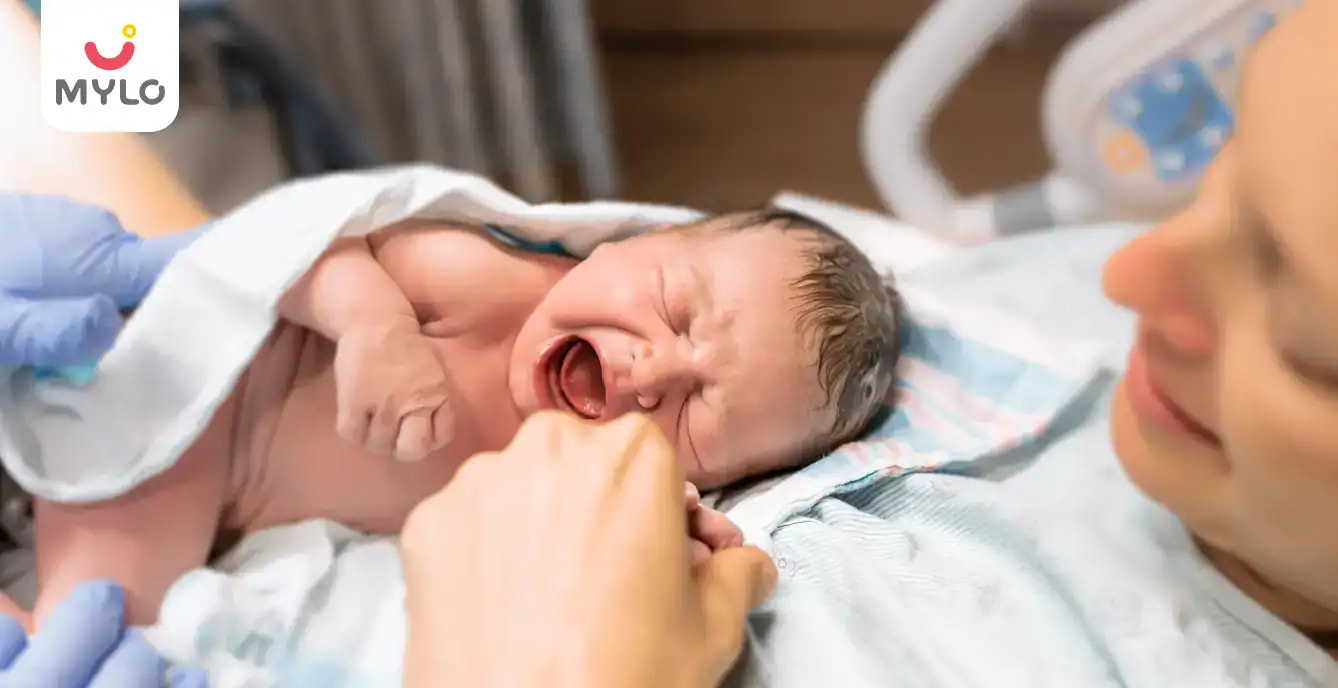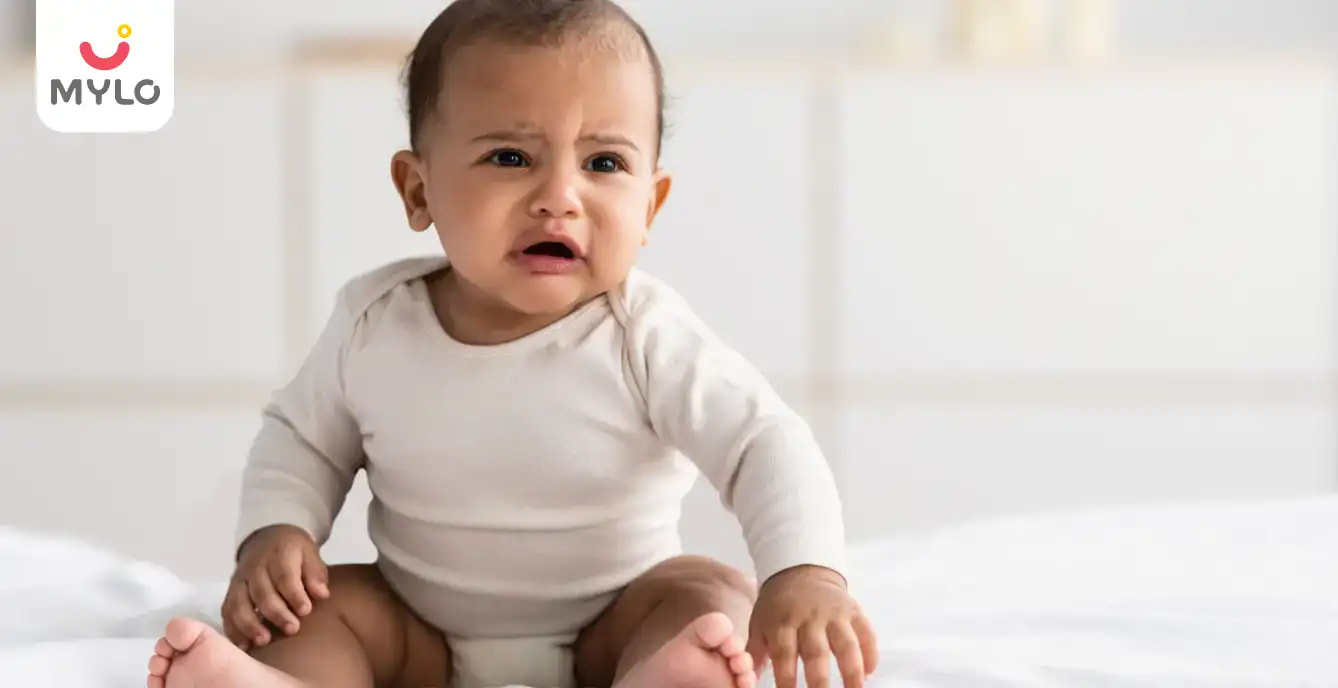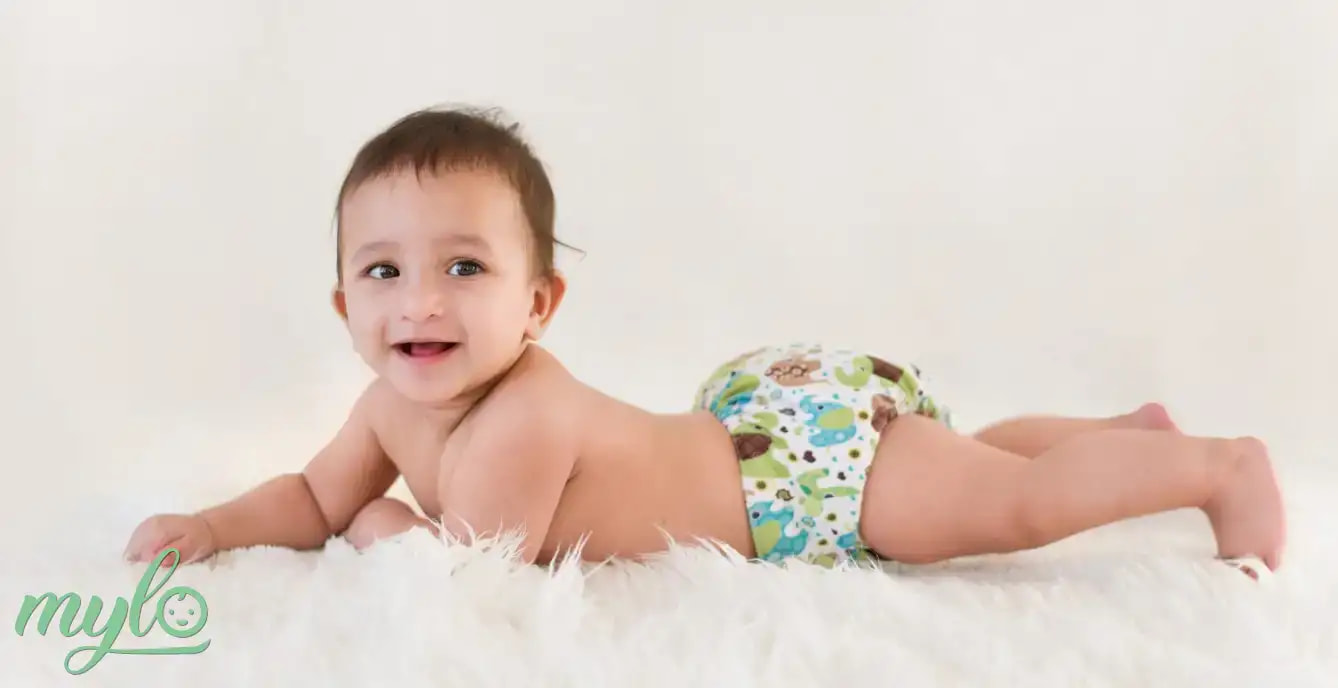Home

How to Stop Baby Hiccups: Everything You Need to Know
In this Article
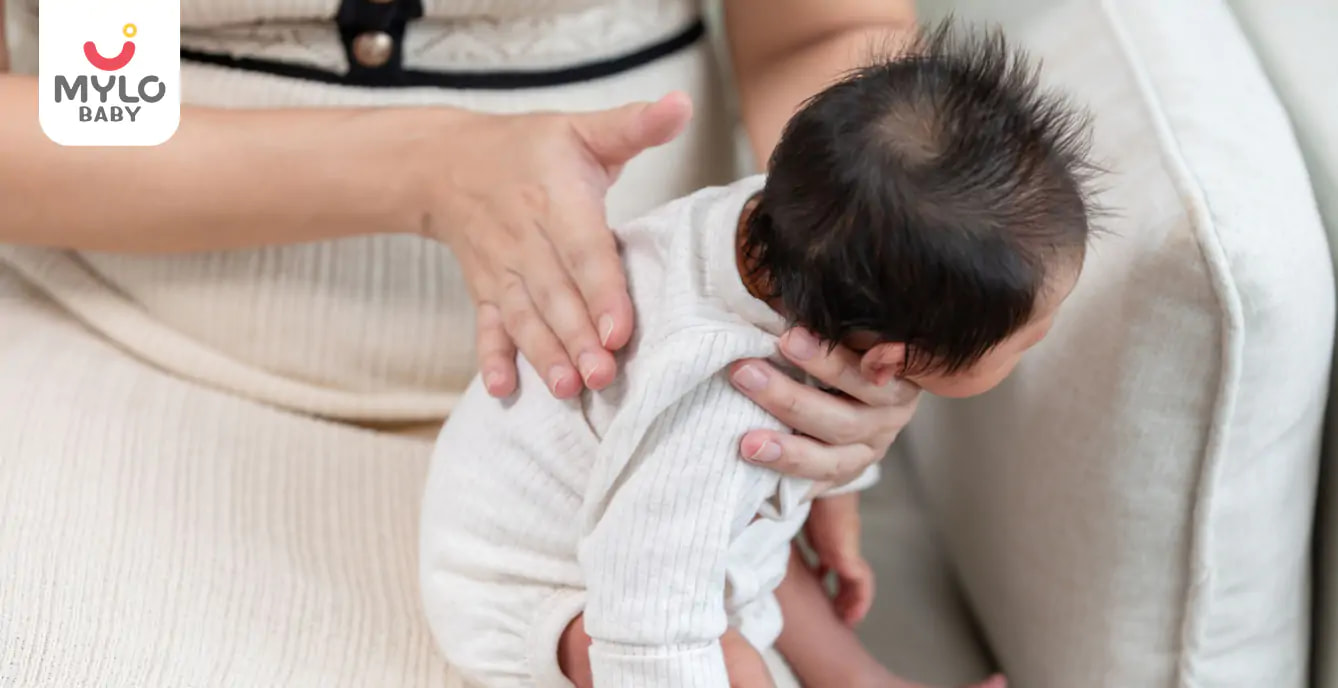
Baby Care
How to Stop Baby Hiccups: Everything You Need to Know
Updated on 11 April 2023

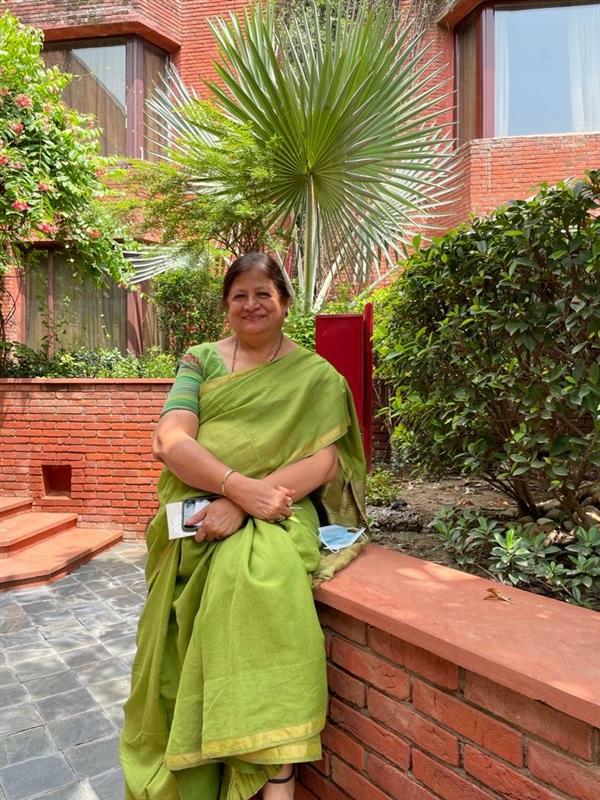

Medically Reviewed by
Kusum Sabharwal
Obstetrician & Gynecologist - MBBS| DGO
View Profile

Hiccups are a common occurrence in babies and can be a cause of concern for parents. While they are usually harmless, persistent hiccups can cause discomfort and interrupt feeding and sleep schedules. As a parent, it can be frustrating not knowing how to stop baby hiccups and help your little one.
In this article, we will explore everything you need to know about baby hiccups, including what causes them, how to prevent them, and effective techniques to stop them when they do occur. By the end of this guide, you will feel confident in your ability to soothe your baby's hiccups and help them feel comfortable again.
What Causes Baby Hiccups?
There can be multiple reasons for hiccups in babies, some of them are:
-
When a baby eats or drinks too fast, they may swallow air along with their food, which can cause the stomach to expand and rub against the diaphragm. This causes the typical “hic” sound heard during a hiccup.
-
Oftentimes, an irritated diaphragm is the primary cause of hiccups in babies. A baby’s muscular valve that controls the closure of the food pipe near the stomach is not well developed. This leads to the valve allowing food and acid to enter the food pipe, irritating the diaphragm and leading to hiccups.
-
Sudden changes in the temperature of the stomach can also cause the diaphragm to contract. For example, you gave the baby cold juice and a few minutes later, you feed them hot cereal.
-
Strong emotions, like the baby getting worked up before a feed or a prolonged episode of crying may also cause hiccups.
You may also like: Reflux in Baby: Symptoms, Causes & Treatments
How to Stop Baby Hiccups?
If those recurring “hics” are bothering you and your little one, here are some tips and tricks you can try to stop baby hiccups:
1. Burping the baby
You can take a break in between feeds to burp your baby. If you're bottle feeding your littl one, then you can take a break after every 60 ml of feed. On the other hand, if you're breastfeeding your baby, then you can take time off between changing breasts.
2. Using a pacifier
If your baby has started hiccupping at any other time apart from meal times, try giving them a pacifier. Sucking on the pacifier helps relax the diaphragm, allowing the hiccups to subside.
3. Keeping baby upright
You should try to keep the baby in an upright position for 20 minutes after every feed. This will give the digestive juices some time to work on the feed and also prevent the food and acid to reflux.
4. Letting them run their course
Most of the time, hiccups are just a way for the babies to get rid of the extra air they have swallowed. They usually stop when they have run their course. However, if they continue for more than an hour and are making your baby cranky, do talk to your doctor.
5. Giving baby gripe water
Gripe water is made by combining certain calming herbs and water. Giving a hiccupping baby gripe water can help relieve colic and alleviate the discomfort of intestinal indigestion. As there are a number of products available in the market, it is best to discuss this with your doctor before giving it to the baby.
You may also like: Signs Your Baby Has Gas and How To Treat It
6. Distracting the baby
If the bout of hiccups has already hit, try distracting the baby. Engage them with a rattle or make them laugh. The moment they forget about the hiccups, they would stop as soon as they started. But remember, distracting the baby does not mean scaring them.
7. Calming the baby
You can also gently rub your baby’s back and rock them. This may help calm the baby and their diaphragm, stopping the baby hiccups gradually.
8. Giving them sugar
Sugar is known to relax the muscles of the diaphragm. So, if your baby has started solid foods, putting some sugar in their mouth may do the trick. On the other hand, if the baby is still only on liquids, then you can dip their pacifier in sugar syrup and place it in their mouth for relief. But don't do this too often lest it may cause dental problems.
How to Prevent Baby Hiccups?
While hiccups are a normal and common occurrence in babies, there are a few things you can do to help prevent them.
1. Feeding right
One way to prevent baby hiccups is to pay attention to your baby’s feeding time. Do not wait till the baby is so hungry that they start crying inconsolably, triggering the hiccups. Also, make sure your baby is positioned properly during feedings, with their head slightly elevated and their body in a comfortable, relaxed position. Also try giving smaller, more frequent meals to the baby.
2. Avoid air from entering their system
If you are bottle feeding your baby, then ensure that the teat is completely filled with milk so that they do not swallow any air, resulting in hiccups or colic. If you're breastfeeding your baby, ensure that their mouth completely covers the nipple so that they do not swallow air.
3. Keep them calm during feeding
You should also try to keep your baby as calm and relaxed as possible during feedings by avoiding distractions and keeping a peaceful environment. And once you have fed your baby, don't forget to burp them and take proper breaks in between feeding.
You may also like: Top 5 Reasons Why Burping Your Baby After Every Feed Is a Must
Usually, hiccups in an infant younger than a year is not a matter of concern. However, if you notice the hiccups continuing for more than an hour or if the baby seems to be agitated and vomit along with the hiccups, it would be advisable to talk to the baby’s pediatrician. Baby hiccups, combined with the additional symptoms, may indicate other medical problems and a doctor would be the best person to rule out any concerns and offer the right treatment.





Medically Reviewed by
Kusum Sabharwal
Obstetrician & Gynecologist - MBBS| DGO
View Profile


Written by
Priyanka Verma
Priyanka is an experienced editor & content writer with great attention to detail. Mother to an 11-year-old, she's a ski
Read MoreGet baby's diet chart, and growth tips

Related Articles
Related Topics
RECENTLY PUBLISHED ARTICLES
our most recent articles
topics
“Staying Active and Healthy: The Benefits of Safe Exercise During Pregnancy”
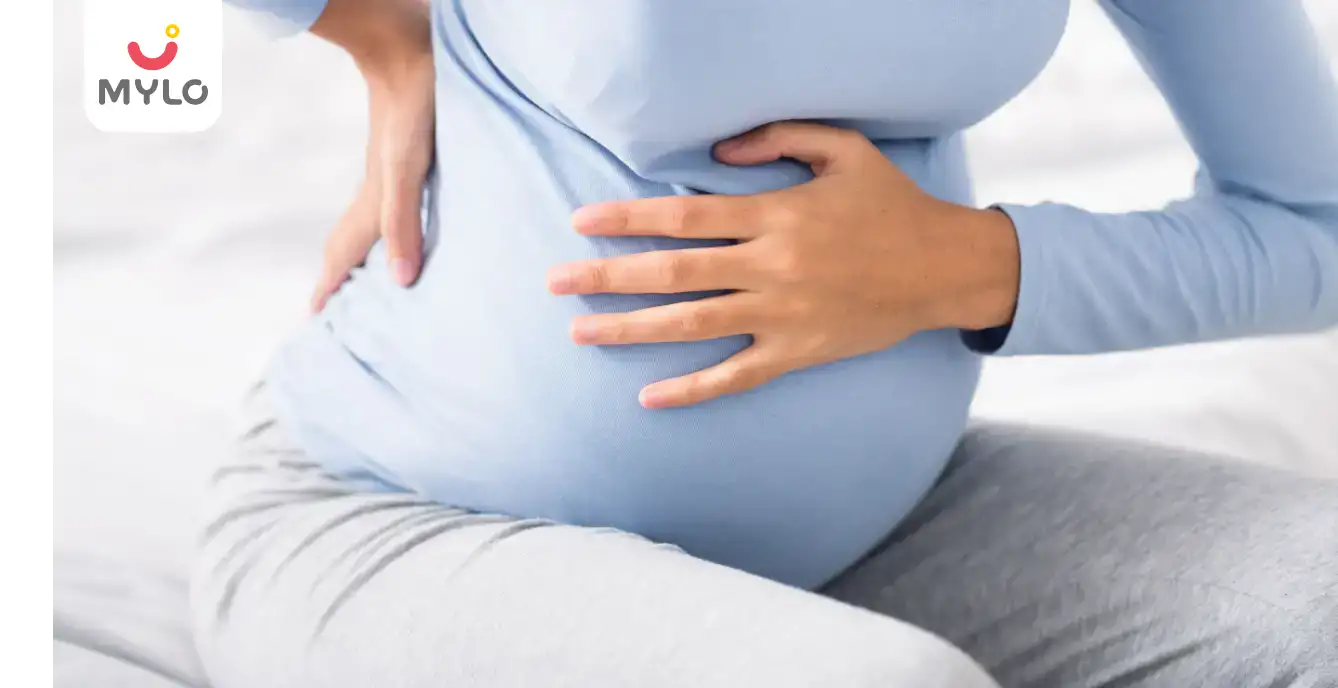
Health & Wellness
Appendicitis In Pregnancy Symptoms, Diagnosis & Surgery
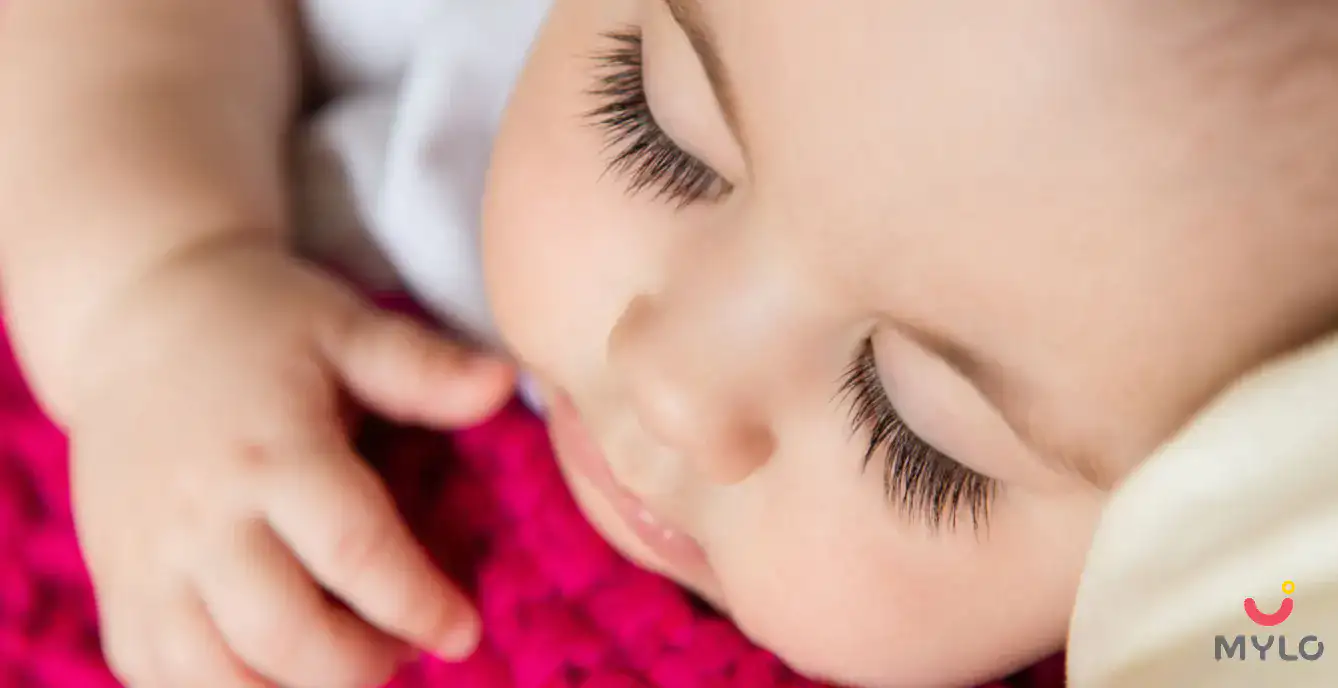
Baby Sleep Management
5 Common Myths Busted About Baby Sleep
Ectopic Pregnancy
“Ectopic Pregnancy: All You Need to Know About This Complication”
Jan'22 Birthclub
Importance of Typhoid vaccines
Jan'22 Birthclub
Benefits of eating nuts
- Can One Induce Labor Naturally?
- Should One Consider Keeping Their Pregnancy A Lowkey News?
- Destination decide
- After delivery pregnancy
- Mylo....
- Meri folecular study hui hai mujhe last 10, 12 din drest halka halka pain ho raha tha but kal band ho gaya kya ye period ka lakshan hai ya fir pregnancy ka
- cute baby
- Blessings
- Summer hacks that makes up your skin healthy
- Want to know
- Level 2 ultrasound report
- Aaj hum morning ko mammi ban gye ladki hui h
- Orange colour of joy and creativity
- Ek Nayi soch azaadi ki taraf


AWARDS AND RECOGNITION

Mylo wins Forbes D2C Disruptor award

Mylo wins The Economic Times Promising Brands 2022
AS SEEN IN

- Mylo Care: Effective and science-backed personal care and wellness solutions for a joyful you.
- Mylo Baby: Science-backed, gentle and effective personal care & hygiene range for your little one.
- Mylo Community: Trusted and empathetic community of 10mn+ parents and experts.
Product Categories
baby carrier | baby soap | baby wipes | stretch marks cream | baby cream | baby shampoo | baby massage oil | baby hair oil | stretch marks oil | baby body wash | baby powder | baby lotion | diaper rash cream | newborn diapers | teether | baby kajal | baby diapers | cloth diapers |



